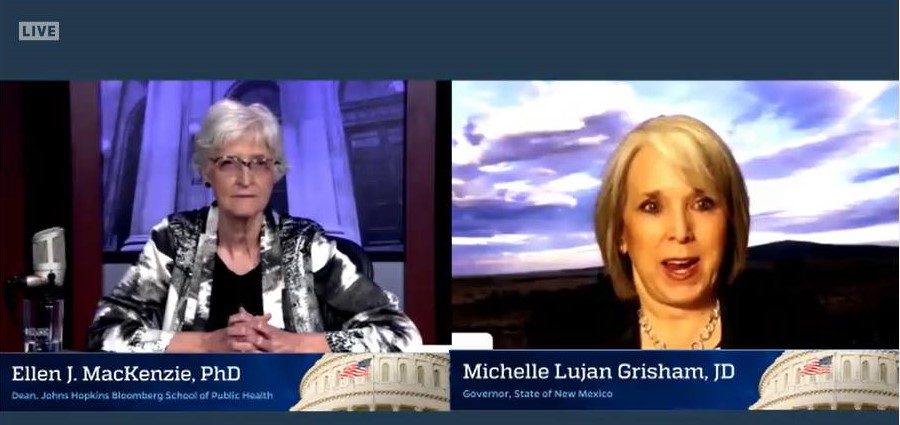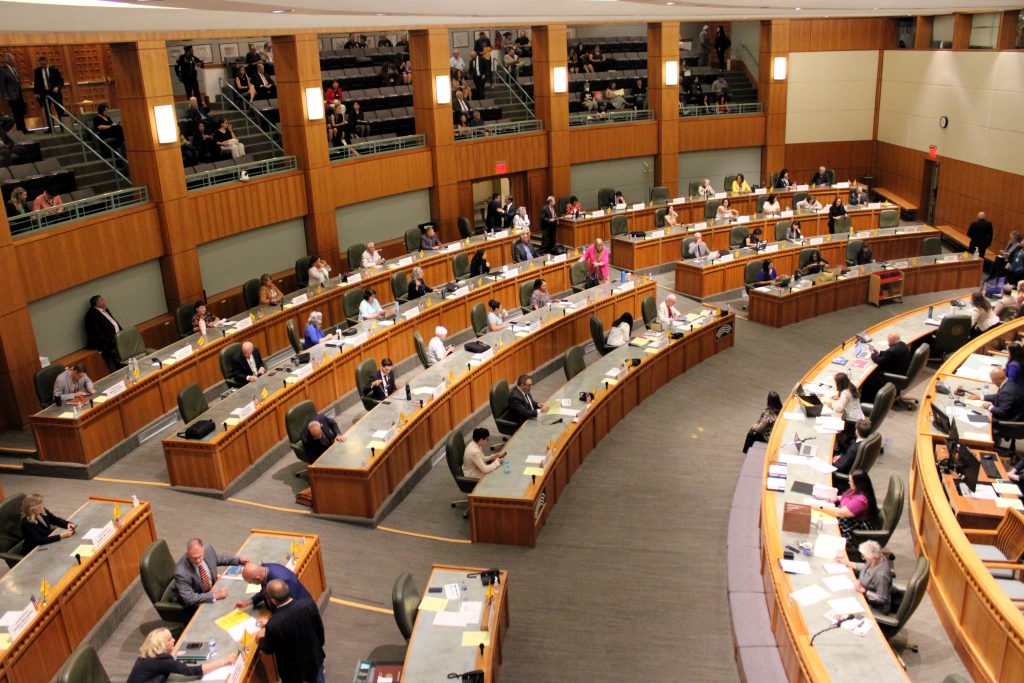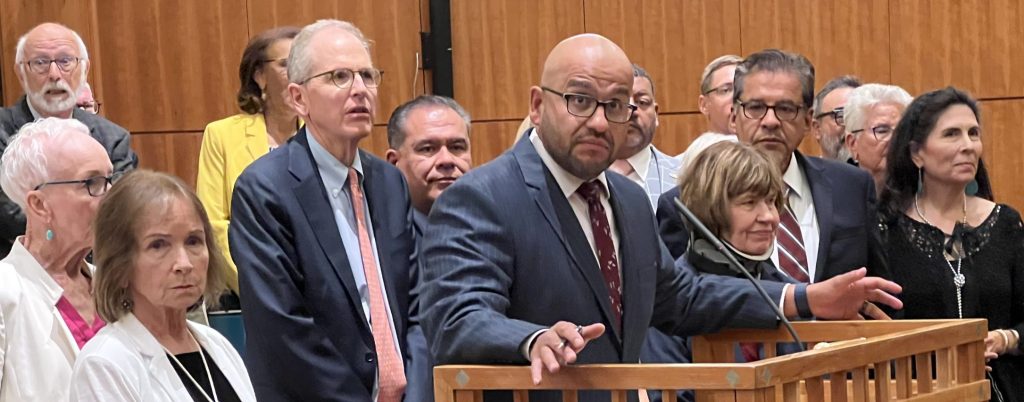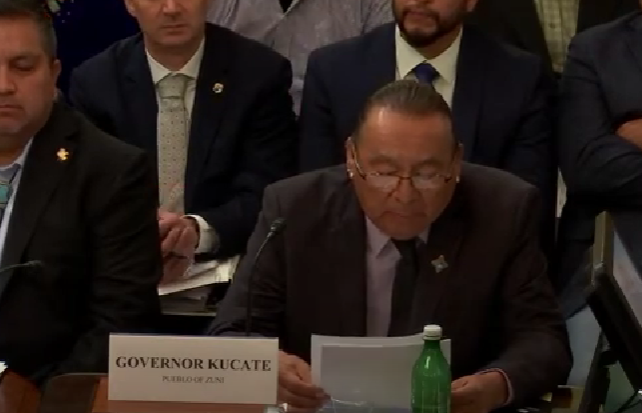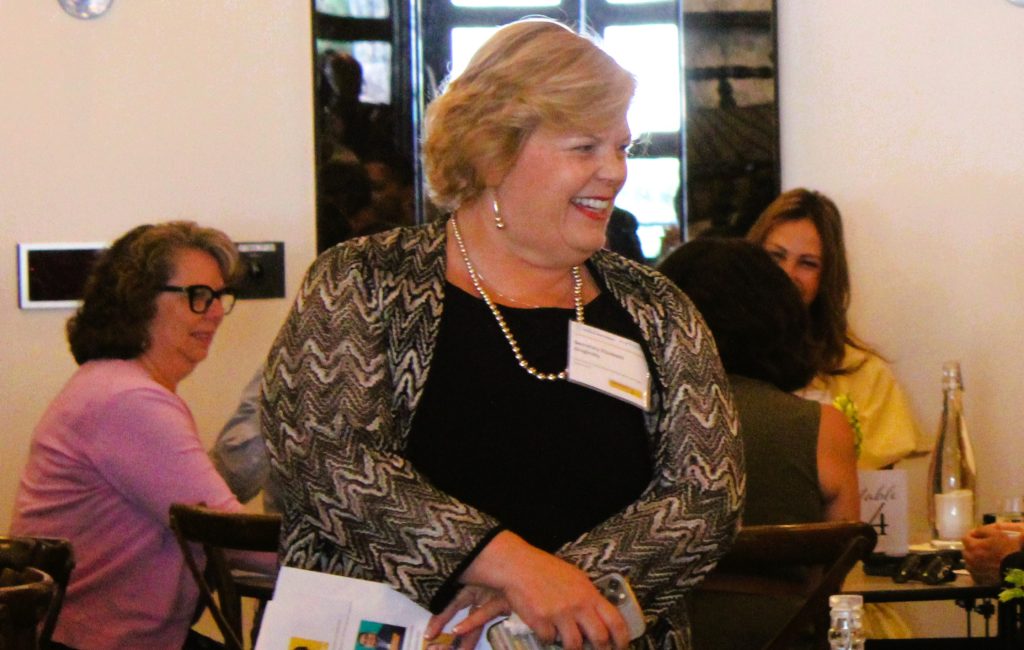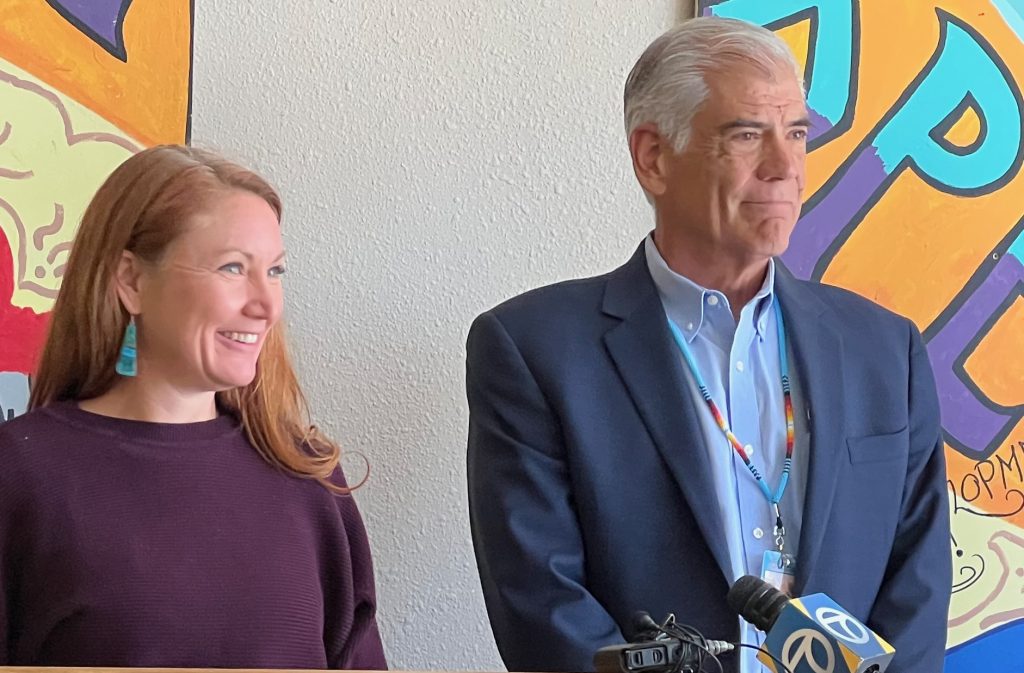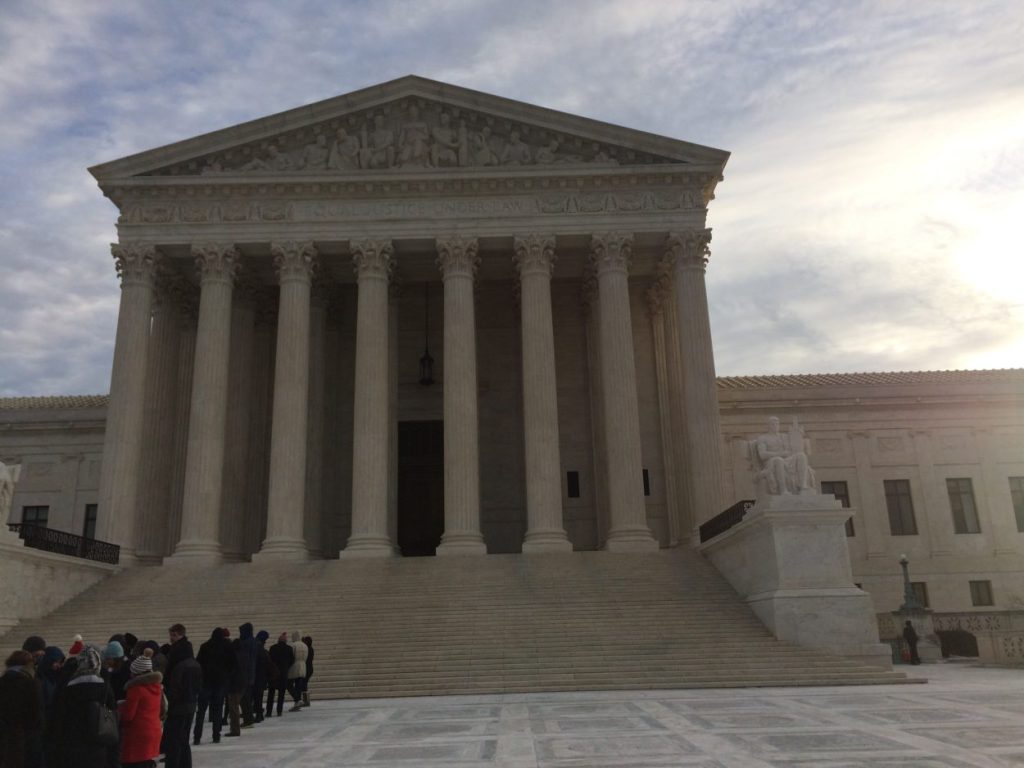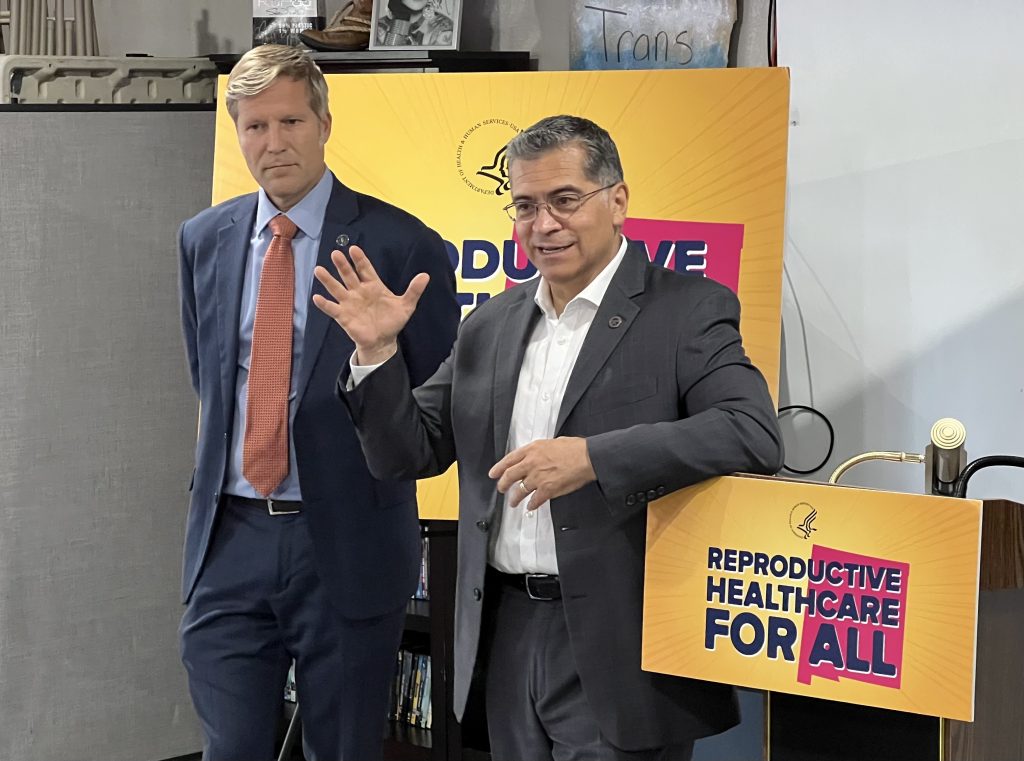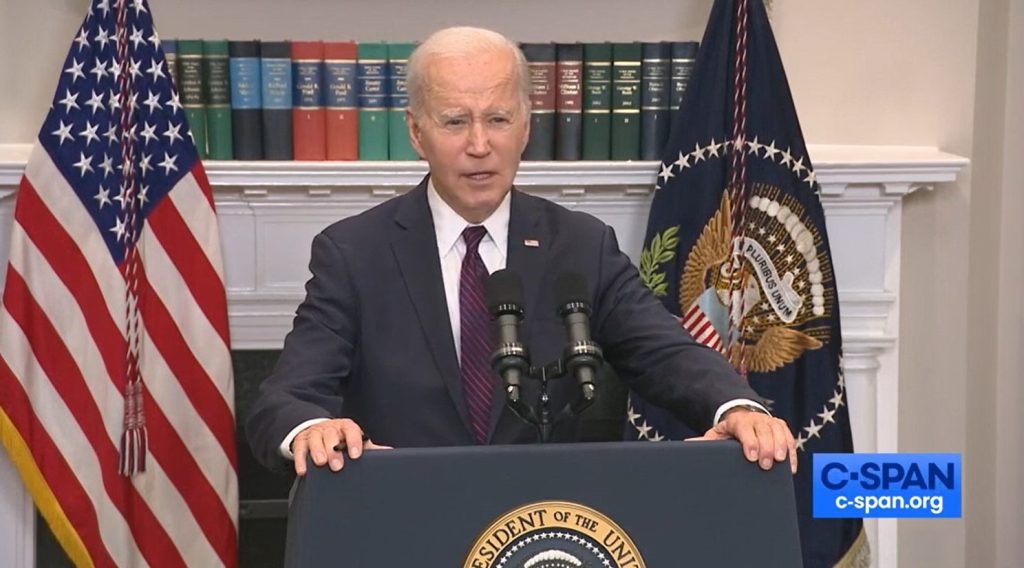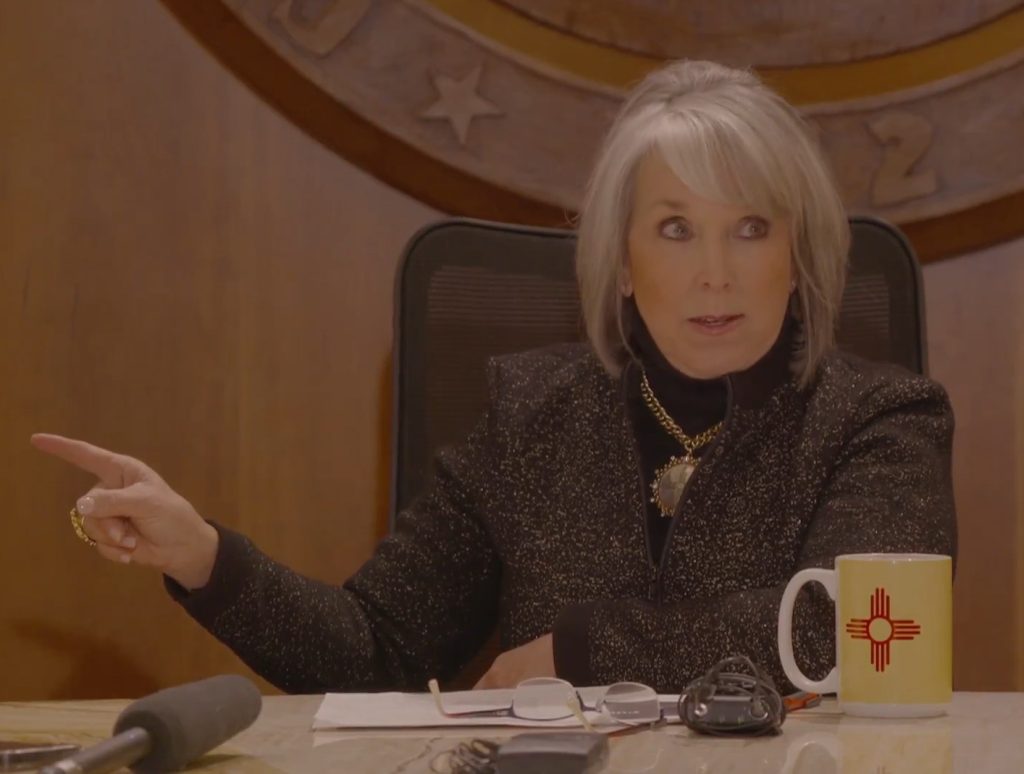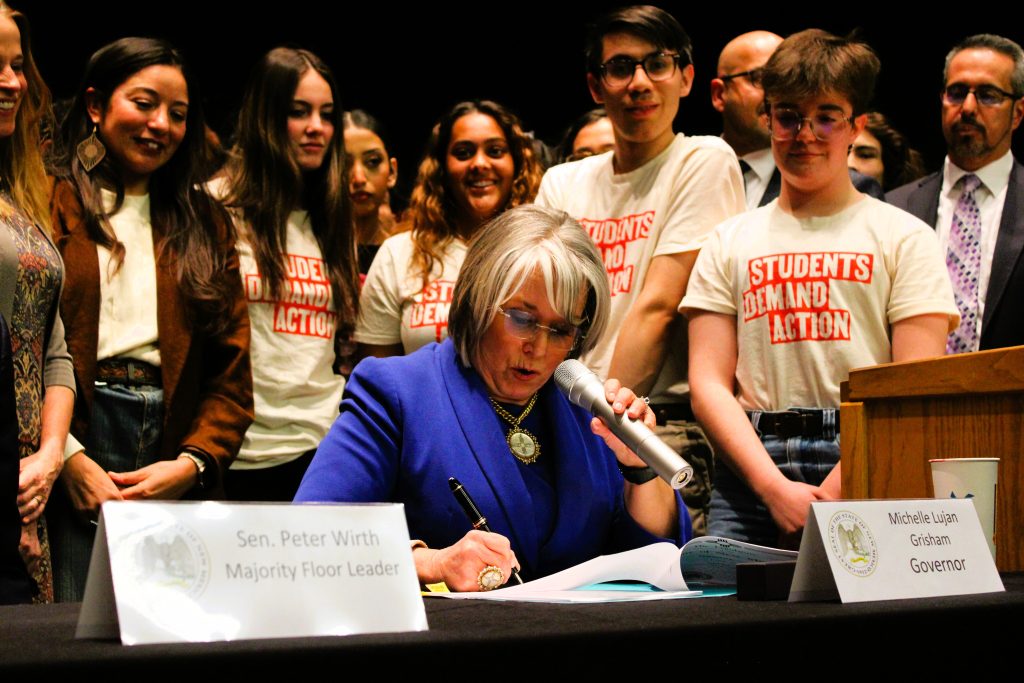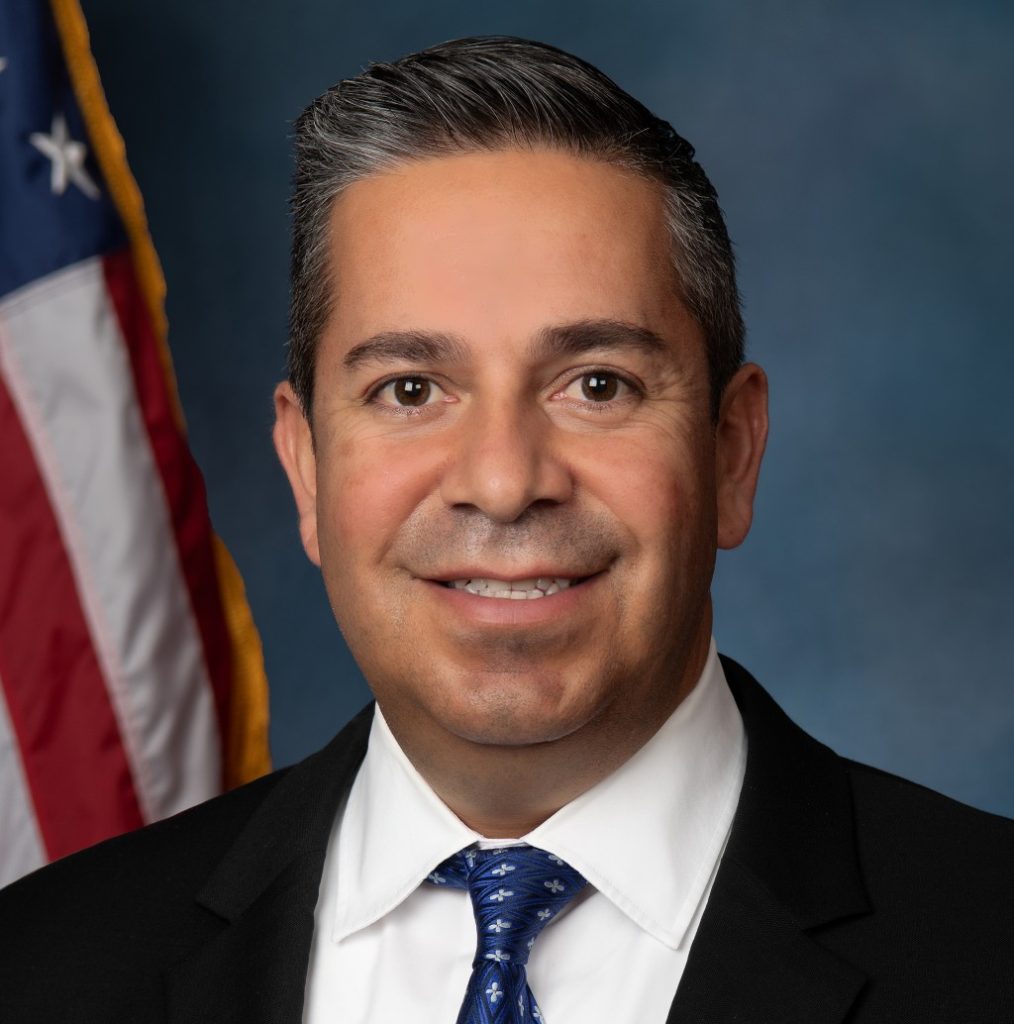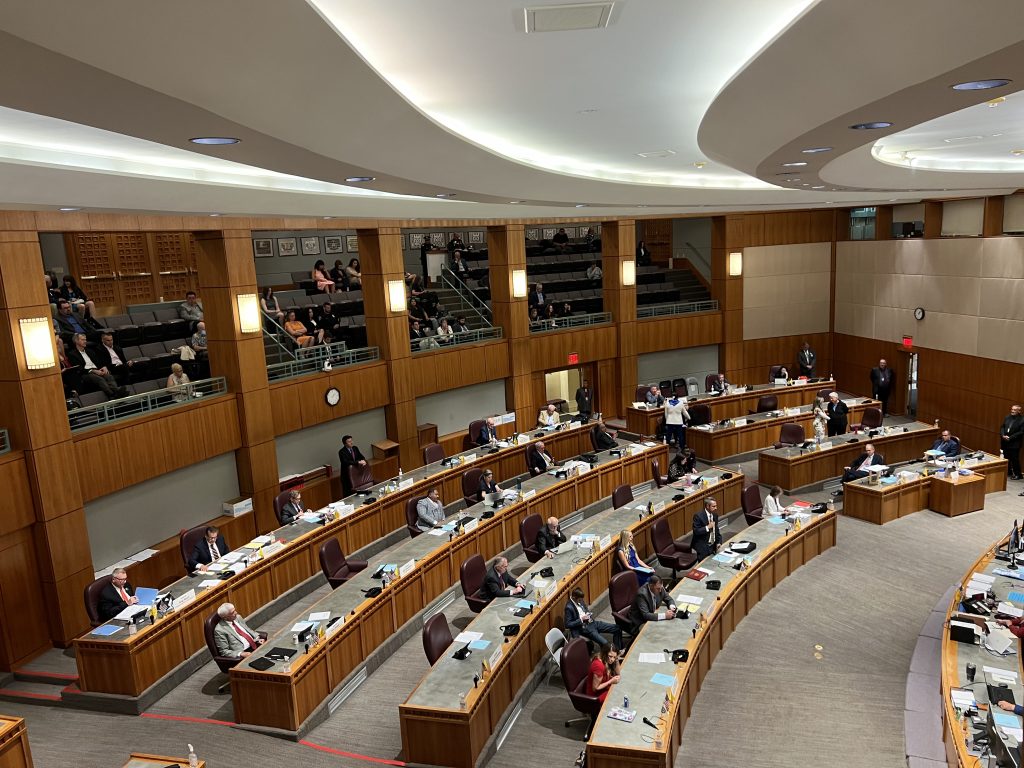Gov. Michelle Lujan Grisham spoke at the Johns Hopkins Bloomberg School of Public Health fireside chat Friday morning.
She spoke about health policy solutions for New Mexico and beyond, as well as strategies for leading on public health and policy issues with host Ellen MacKenzie, the Bloomberg School Dean.
“This is a country that could do far better in health outcomes and the underlying root cause for at least someone like me is the fact that we don’t respect public health initiatives and investments,” Lujan Grisham said.
Lujan Grisham discussed many of the changes made during the 2023 legislative session including universal free meals for school children, protecting women’s reproductive rights and gender-affirming care and what the state is doing to expand rural broadband onto the state’s pueblo, nation and tribal lands.
“We are running as fast as we can to get fiber to every household in the Navajo Nation,” Lujan Grisham said. “That may not be possible. So we’re creating strategies and, fingers crossed, hoping to deploy new technologies, including a company called Sceye that uses basically balloons to hover in areas that can bring you access to the internet.”
Sceye is a “material science company leading a new generation of high-altitude platform stations, or HAPS,” according to the company’s website.
Another issue on the Navajo Nation is the people not being able to access clean water without hauling it in from elsewhere.
“The Navajo Nation does not have adequate access to clean water. Forty percent of the Navajo Nation on the New Mexico side hauls water,” Lujan Grisham said.
Lujan Grisham said she is working with the U.S. Bureau of Reclamation to get funding to work on that issue.
Lujan Grisham extolled the universal free meals program for students, a program she announced the last time she spoke at Johns Hopkins in December.
“I announced at your last conference that we were going to be a universal meal state at schools and now we’re the first state in the nation to have universal meals,” Lujan Grisham said. “We don’t charge kids for meals. Meals before the bell, meals after the bell lunches, snacks, food to go home. But in addition to that they have to be healthy. So scratch cooking, huge investments in new infrastructure contracts with local farmers and ranchers and growers and we aren’t going to stop until these meals are meaningful, changing then the nutritional balances for families who have long been at risk. Hungry kids don’t learn, can’t in the same way.”
More: Governor cites universal free school meals as legislative priority
Lujan Grisham has a background in caregiving, especially to the elderly population. She initially became interested in the situation when she was working for the State Bar of New Mexico in a program called Lawyer Referral for the Elderly where she started out volunteering as a means of paying off her attorney license fees and was running the program six months later, she said.
“That was the program that changed my life and my perspective and that everything is too hard to navigate, that marrying the private sector and the public sector, frankly, is still rather a nightmare,” Lujan Grisham said. “Those things led me unequivocally to want to be in public policy and that’s how I became a cabinet secretary. I bossed around a bunch of governors until one of them would hire me.”
With that, Lujan Grisham spoke about how caregiving is an international problem with the Baby Boom generation getting older and not enough people to take care of them.
While she was in Congress, she proposed the Care Corps Act in 2014, but it was never heard on the House floor.
The Care Corps would have been a program modeled after the Peace Corps to help family caregivers.
The bill was reintroduced in the years since but has not gotten past the committee process.
As the fireside chat was winding down, the two discussed climate change and how New Mexico was a leader in the transition to green energy with the Energy Transition Act which entails utilities becoming carbon neutral by 2045.
“We’re gonna beat that. We’re already moving towards 2040 and my goal is maybe we can do even better by 2035, Lujan Grisham said. “In fact, one of the big challenges that states have was bigger utilities had the buying power for renewables to meet those standards, but the local Rural Electric Co-Ops do not and I want to just shout out for New Mexico, the Carson Electric Co Op in Taos County is completely green during the daylight hours.”
Environmental groups criticized a number of actions Lujan Grisham took this year, including vetoing tax credits. The groups said that more action is needed to address climate change going forward.
The talk concluded with Lujan Grisham’s advice for young people.
She suggested that young people serve as advocates to help modernize higher education through cross-training such as environmental science with political science with public health to make the degrees more overarching.
“The more cross-training across degrees we’re going to have, and the more young people are going to be, I think, satisfied and paid well, so they can raise their own families in whatever way they choose in that work life balance,” Lujan Grisham said. “If we want to save the planet and we want to make families independent and we want to eradicate poverty and injustice; it’s going to take a whole new class of young, dedicated professionals, who are ready to take on the mantle.”

